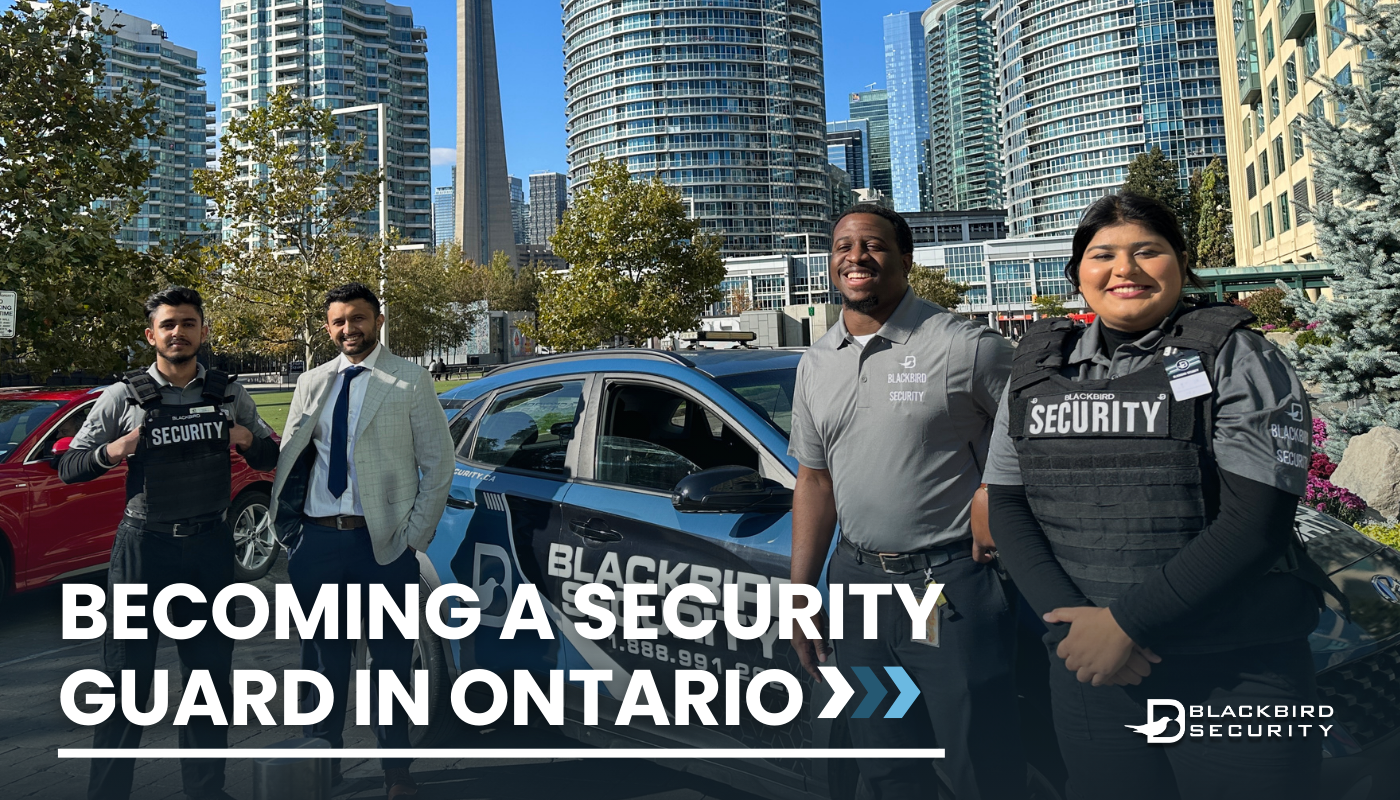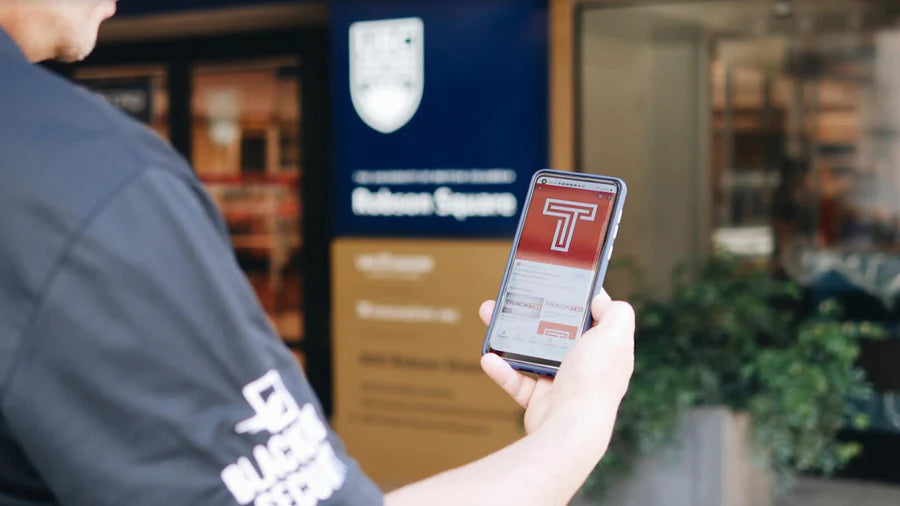How to Become a Security Guard in Ontario: Your Comprehensive Guide
The security industry in Ontario offers a dynamic and essential service, providing safety and protection across various sectors. If you're looking for a rewarding career where you can make a real difference, becoming a licensed security guard in Ontario might be the perfect path for you. This comprehensive guide will walk you through the necessary steps and requirements to obtain your security guard license and embark on this profession in Ontario.

Understanding the Requirements for a Security Guard License in Ontario
Before you begin your journey, it's crucial to understand the fundamental eligibility criteria set by the Ontario government. According to the official Ontario government website, to be eligible for a security guard license, you must:
-
Be 18 years of age or older: This ensures that individuals entering the security profession have reached the age of majority.
-
Be legally entitled to work in Canada: You must be a Canadian citizen, permanent resident, or possess a valid work permit.
-
Have a clean criminal record: As per Ontario Regulation 37/08 under the Private Security and Investigative Services Act, 2005, you must not have been convicted of certain criminal offences. A Criminal Record and Judicial Matters Check (CRJMC) is required to verify this.
Step-by-Step Guide to Obtaining Your Ontario Security License
Becoming a licensed security guard in Ontario involves a structured process. Here are the key steps you need to follow:
Obtain a Criminal Record and Judicial Matters Check (CRJMC)
The first crucial step is to obtain a Criminal Record and Judicial Matters Check (CRJMC) from your local police service. This check verifies that you do not have a criminal record that would disqualify you from holding a security guard license.
How to Obtain a CRJMC: You can typically apply for a CRJMC online, in person at the police headquarters, or by mail, depending on your local police service. You will need to provide two pieces of valid government-issued identification, one of which must include your photo and signature.
Important Note: Ensure that the CRJMC is in its official format, and if you have a physical copy, you will likely need to submit your license application by mail. The CRJMC must generally be completed within six months of your license application date. Be aware that fees and processing times for a CRJMC can vary depending on the police service. For example, the Toronto Police Service processes CRJMC applications and provides information on how to apply online, in person, or by mail.
Complete Mandatory Security Guard Training
Once you have your CRJMC, the next step is to complete the mandatory basic training for security guards. This training is essential to equip you with the knowledge and skills required to perform your duties effectively and professionally.
Training Requirements: The basic security guard training course in Ontario is a minimum of 40 hours in duration. This typically includes both online and in-class components, covering topics such as:
-
Introduction to the Security Industry
-
The Private Security and Investigative Services Act and Code of Conduct
-
Basic Security Procedures
-
Report Writing
-
Health and Safety
-
Emergency Response Preparation
-
The Canadian Legal System and Authorities
-
Effective Communication
-
Sensitivity Training
-
Use of Force Theory
First Aid and CPR: A crucial part of the training requirement is certification in Emergency First Aid and Level A CPR (minimum) or the recommended Standard First Aid and Level C CPR. This certification must be from a Workplace Safety and Insurance Board (WSIB) approved provider. Many training providers integrate this into their security guard training programs.
Read more: How Security Guards Handle Medical Emergencies
Finding a Training Provider: The Ontario government provides a list of approved basic training providers, including community colleges, career colleges, licensed agencies, and registered employers. It's important to choose a reputable provider that meets the Ministry's standards.
Pass the Ontario Security Guard Test
After completing the mandatory training, you will receive an Ontario Testing Completion Number (TCN) from your training provider. You will need this TCN to register for and take the mandatory security guard test administered by the Ministry of the Solicitor General.
The Test: The basic security guard test in Ontario consists of 60 multiple-choice questions. You have 75 minutes to complete the exam, and you need a score of at least 62% to pass.
Registration and Fees: You can register for the exam online through the Ontario Security Testing website. The examination fee is approximately $35 plus HST. You can take the test online or in person at a DriveTest centre.
Test Results: Typically, you will receive your test results within a few business days of taking the exam. If you don't pass on your first attempt, you can retake the test, but you will need to pay the fee each time.
Looking for a Career As A Security Guard? - Review Available Jobs at Blackbird
Apply for Your Ontario Security Guard License
Once you have successfully passed the security guard test and have your TCN, you can officially apply for your Ontario Security Guard license through ServiceOntario.
-
Application Process: You can apply for your license online, which is generally faster, or by mail using a paper application form.
-
Required Documents and Information: When applying, you will need to submit the following:
-
Your Ontario Testing Completion Number (TCN).
-
A passport-quality photograph (50mm x 70mm with a white background).
-
The front and back of two different valid (non-expired) government-issued identification documents, one of which confirms your legal right to work in Canada. Examples include a passport, driver's license, or permanent resident card. Note that Ontario Health Cards are not accepted as identification.
-
Your original Criminal Record and Judicial Matters Check (CRJMC) in its official format (if applying by mail). If applying online, you may need to upload a digitally issued PDF of your CRJMC.
-
Your Ontario mailing address.
-
The appropriate payment for your license. The current fee for a security guard license is $80. You can pay online using a credit or debit card. If applying by mail, you can pay by certified cheque, bank draft, or money order.
-
Guarantor Information Form (Potentially Required): In some cases, you might need to submit a completed Guarantor Information Form signed by someone who can verify your identity.
Read more: How To Become A Security Guard: Security Licensing In Canada
Receiving and Maintaining Your Security Guard License
After submitting your application and all required documents, ServiceOntario will process your application.
-
Processing Time: Most online applications are processed within 60 to 90 business days. More complex applications may take longer. If you apply online, you can access a printable digital license certificate as soon as your application is approved, which can be used as temporary proof of licensing until you receive your plastic license card by mail (typically within eight weeks). Mailed applications may take longer to process.
-
License Expiry and Renewal: Your security guard license in Ontario is linked to your date of birth and will expire two birthdays after the day it is issued. When you renew your valid license, the renewal date will always be two years in the future and linked to your date of birth.
-
Carrying Your License: You are legally required to carry a digital or printed copy of your valid license at all times while working as a security guard and be prepared to show it upon request to anyone, including employers, police officers, and members of the public.
Out-of-Province Licenses
If you hold a valid (not expired, suspended, or revoked) equivalent security guard license from another Canadian province or territory, you may be eligible for a transfer without needing to complete the Ontario training and testing. In this case, you will need to provide specific information with your application, including your out-of-province license number, type, expiry date, issuing province/territory, and a photocopy of the front and back of your valid out-of-province license. You can contact the Private Security and Investigative Services Branch (PSISB) for more information on transferring your license.

Frequently Asked Questions (FAQs)
How long does it take to get a security guard license in Ontario?
Most applications are processed within 60 to 90 business days. More complex applications may take longer. Online applicants can access a printable digital license certificate as soon as their application is approved.
How much does it cost to become a security guard in Ontario?
The cost to obtain your Ontario Security Guard license includes:
-
Training: The cost of the mandatory 40-hour security guard training course can vary depending on the provider, ranging from approximately $100 to $300 or more, often including First Aid and CPR certification. Some providers offer online options for around $100-$150, while in-person courses might be more expensive.
-
Testing Fee: The fee to take the Ontario Security Guard Test is approximately $35 plus HST.
-
License Application Fee: The fee to apply for the Ontario Security Guard license itself is $80.
-
Criminal Record Check: The cost of a Criminal Record and Judicial Matters Check (CRJMC) can vary depending on your local police service, typically ranging from $25 to $60.
Therefore, the total cost to become a licensed security guard in Ontario can range from approximately $240 to $475 or more, depending on the training provider and the cost of your CRJMC.
What are the four requirements to be a security guard in Ontario?
The four main eligibility requirements for receiving a security guard license in Ontario are:
-
Must be at least 18 years of age or older.
-
Should not have been convicted of any crime, misdemeanor, or transgression as specified under Ontario Regulation 37/08. This is verified through a Criminal Record and Judicial Matters Check (CRJMC).
-
Should be legally entitled/qualified to pursue a career in Canada.
-
Must complete the mandatory training for security guards and pass the government-administered exam.
Looking for a Career As A Security Guard? - Review Available Jobs at Blackbird
Blackbird Academy
Drawing upon our extensive experience in the security sector, we have developed Blackbird Academy, a premier training initiative in Canada. This program integrates the knowledge of our internal specialists with that of carefully selected, top-tier industry professionals. The result is a thorough and diverse curriculum designed to empower our security personnel to confidently and effectively manage any situation they may encounter.
Graduates of Blackbird Academy are provided with the essential resources and expertise to build a successful and lasting career in security. Throughout their training, every aspiring security guard benefits from a dedicated mentor, training manager, or instructor who offers consistent feedback, regular progress checks, and valuable guidance.
Conclusion
Becoming a licensed security guard in Ontario is a multi-step process that requires dedication and adherence to the regulations set by the Ontario government. By understanding the requirements, completing the necessary training, passing the exam, and submitting a complete application, you can successfully obtain your security guard license and embark on a meaningful career in the security industry with companies like Blackbird Security. Remember to always carry your license while on duty and stay informed about any updates to the licensing regulations. Good luck with your application!
Partner With Canada’s Best Security Company
At Blackbird Security, we understand that integrating security teams with proven crime prevention frameworks is essential to promoting safety. Our team is highly trained in protective measures for sites across every industry to provide comprehensive protection. Get in touch with us through the form below to learn how we can support your security needs.








